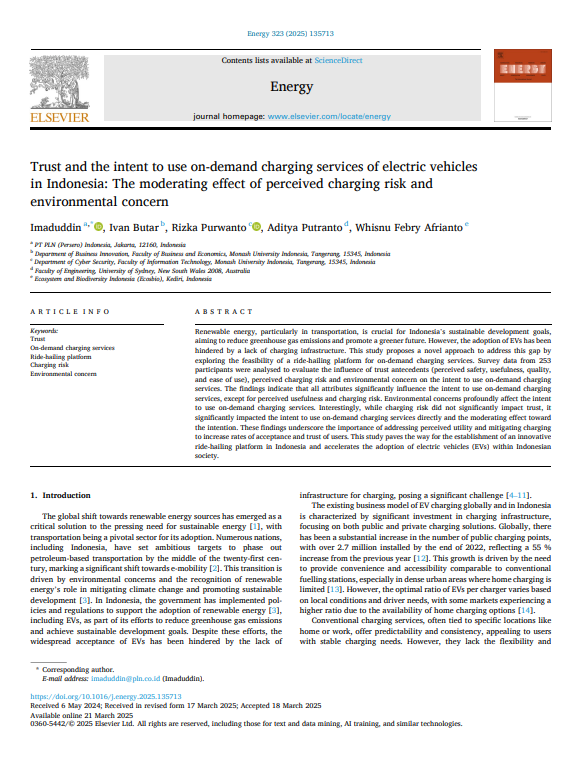
Keyword(s)
Author(s)
Imaduddin, Ivan Butar, Rizka Purwanto, Aditya Putranto, Whisnu Febry Afrianto
Country(ies)
Publisher
Published Date
Access
DOI
Renewable energy, particularly in transportation, is crucial for Indonesia’s sustainable development goals, aiming to reduce greenhouse gas emissions and promote a greener future. However, the adoption of EVs has been hindered by a lack of charging infrastructure. This study proposes a novel approach to address this gap by exploring the feasibility of a ride-hailing platform for on-demand charging services. Survey data from 253 participants were analysed to evaluate the influence of trust antecedents (perceived safety, usefulness, quality, and ease of use), perceived charging risk and environmental concern on the intent to use on-demand charging services. The findings indicate that all attributes significantly influence the intent to use on-demand charging services, except for perceived usefulness and charging risk. Environmental concerns profoundly affect the intent to use on-demand charging services. Interestingly, while charging risk did not significantly impact trust, it significantly impacted the intent to use on-demand charging services directly and the moderating effect toward the intention. These findings underscore the importance of addressing perceived utility and mitigating charging to increase rates of acceptance and trust of users. This study paves the way for the establishment of an innovative ride-hailing platform in Indonesia and accelerates the adoption of electric vehicles (EVs) within Indonesian society.